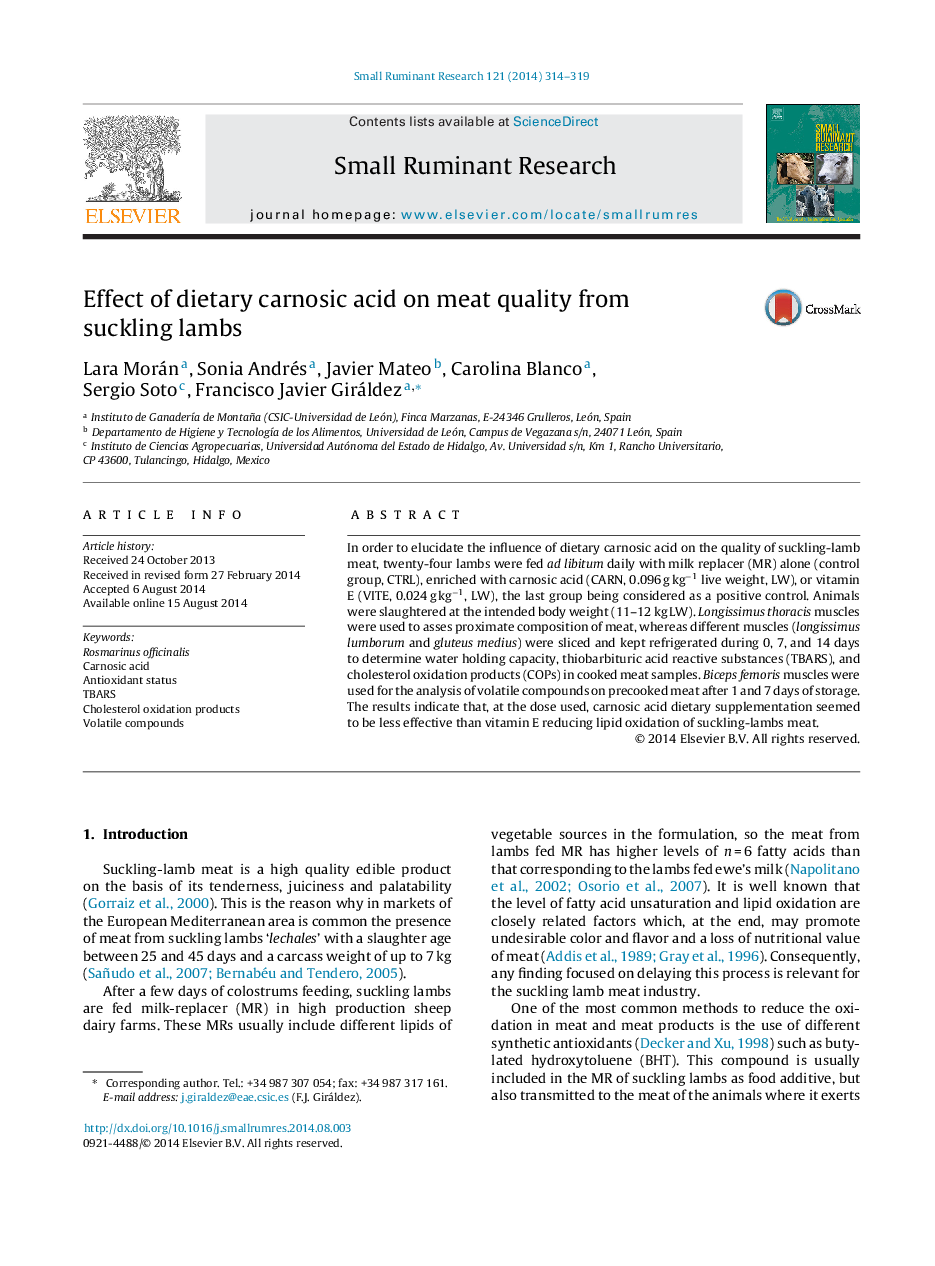| Article ID | Journal | Published Year | Pages | File Type |
|---|---|---|---|---|
| 5795564 | Small Ruminant Research | 2014 | 6 Pages |
In order to elucidate the influence of dietary carnosic acid on the quality of suckling-lamb meat, twenty-four lambs were fed ad libitum daily with milk replacer (MR) alone (control group, CTRL), enriched with carnosic acid (CARN, 0.096 g kgâ1 live weight, LW), or vitamin E (VITE, 0.024 g kgâ1, LW), the last group being considered as a positive control. Animals were slaughtered at the intended body weight (11-12 kg LW). Longissimus thoracis muscles were used to asses proximate composition of meat, whereas different muscles (longissimus lumborum and gluteus medius) were sliced and kept refrigerated during 0, 7, and 14 days to determine water holding capacity, thiobarbituric acid reactive substances (TBARS), and cholesterol oxidation products (COPs) in cooked meat samples. Biceps femoris muscles were used for the analysis of volatile compounds on precooked meat after 1 and 7 days of storage. The results indicate that, at the dose used, carnosic acid dietary supplementation seemed to be less effective than vitamin E reducing lipid oxidation of suckling-lambs meat.
